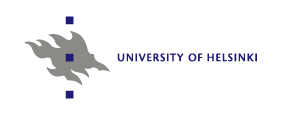- FIN-CLARIAH Research Infrastructure
A new national research infrastructure initiative FIN-CLARIAH for...
8.12.2021 8:12 by eahyvone - WarMemoirSampo published on December 3, 2021
A new “Sampo” application, “WarMemoirSampo”...
8.12.2021 8:04 by eahyvone - Five new SeCo papers accepted for the ISWC 2021
The 20th International Semantic Web Conference (ISWC 2021), the...
2.8.2021 6:53 by eahyvone
- Annastiina Ahola, Lilli Peura, Rafael Leal, Heikki Rantala and Eero Hyvönen: Using generative AI and LLMs to enrich art collection metadata for searching, browsing, and studying art history in Digital Humanities
- Eero Hyvönen, Petri Leskinen, Alexandre Lionnet, Blandine Blukacz-Louisfert, Pierre-Etienne Bourneuf, Davide Rodogno, Grégoire Mallard, and Florian Cafiero: Linked Open Data Approach to Study the Assembly Minutes of International Organizations and Their Underlying Prosopography in the Real World Context
- Eero Hyvönen, Petri Leskinen, Alexandre Lionnet, Blandine Blukacz-Louisfert, Pierre-Etienne Bourneuf, Davide Rodogno, Grégoire Mallard, and Florian Cafiero: A Linked Open Data Infrastructure for Studying Historical Activities of International Organizations: First Results on the League of Nations (1920-1946)
- Petri Leskinen, Eero Hyvönen, Alexandre Lionnet, Blandine Blukacz-Louisfert, Pierre-Etienne Bourneuf, Davide Rodogno, Grégoire Mallard, and Florian Cafiero: A Linked Open Data Service and Semantic Portal to Study the Assembly Minutes and Prosopography of the League of Nations (1920–1946)
 |
Knowledge Extraction from Natural Language
Case Finnish (and Swedish) Texts |
Knowledge Extraction from Finnish Texts
Goals of Research
In Digital Humanities (DH) the data comes in often in textual form (e.g., news, biographies, articles, novels). When publishing such content as Linked Data for DH analysis, the meaning of literal mentions of entities (such as names of persons and places), concepts, relations, events, topics, etc. have to be extracted from unstructured texts and represented as structured semantic data for the computer. In our own work, for example, such knowledge extraction has been needed when developing the Sampo series of semantic portals.
During this research, various natural language processing (NLP) tools and linguistic datasets have been developed. In our view, such tools and resources should be made openly available on the Web as web services. NLP tools and resources would be an important part of the Linked Open Data Infrastructure for Digital Humanities in Finland.
Services for NLP
More information will appear here later.
Contact Persons
Dr. Cand. Rafael Leal, Aalto University
Prof. Eero Hyvönen, University of Helsinki (HELDIG) and Aalto


